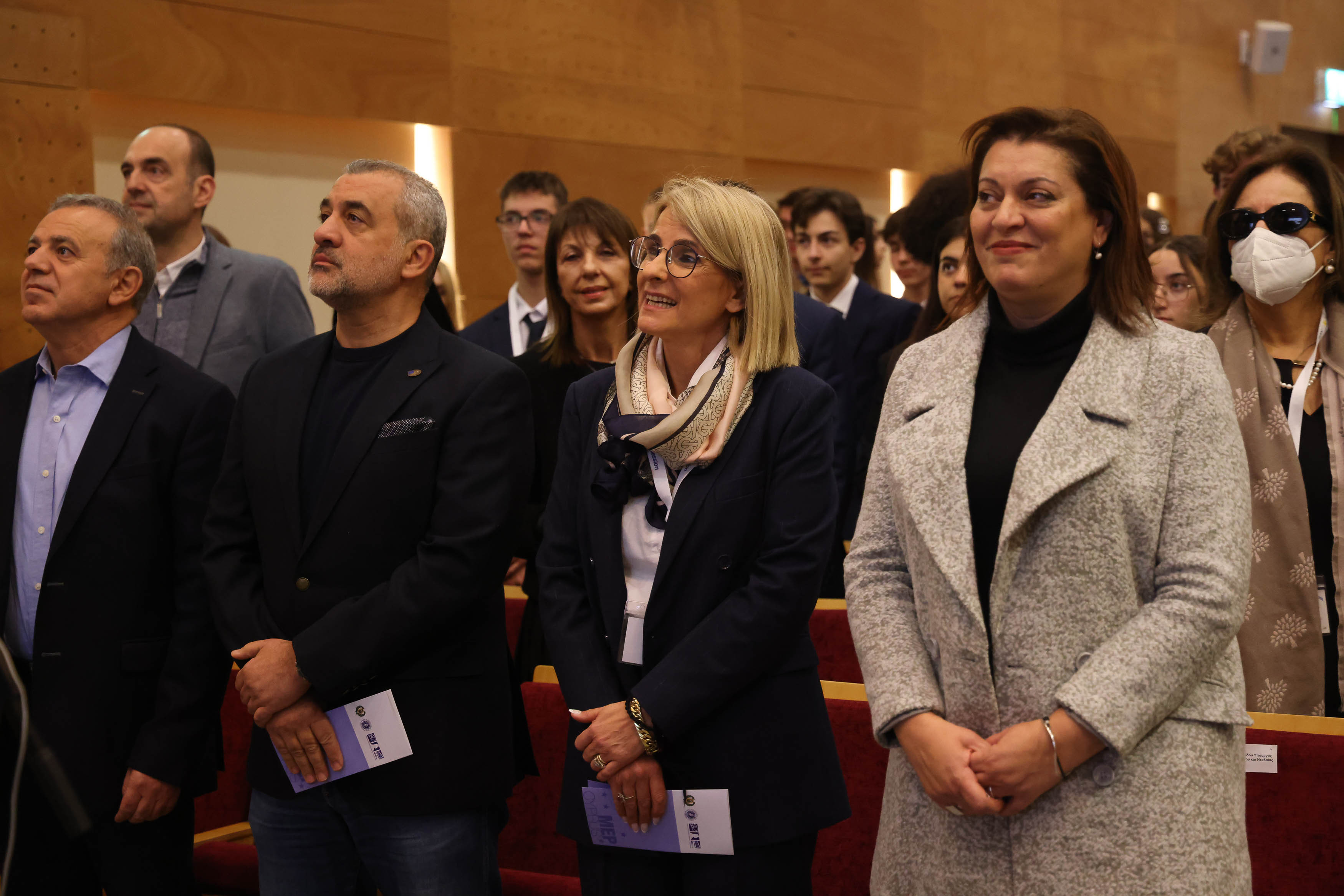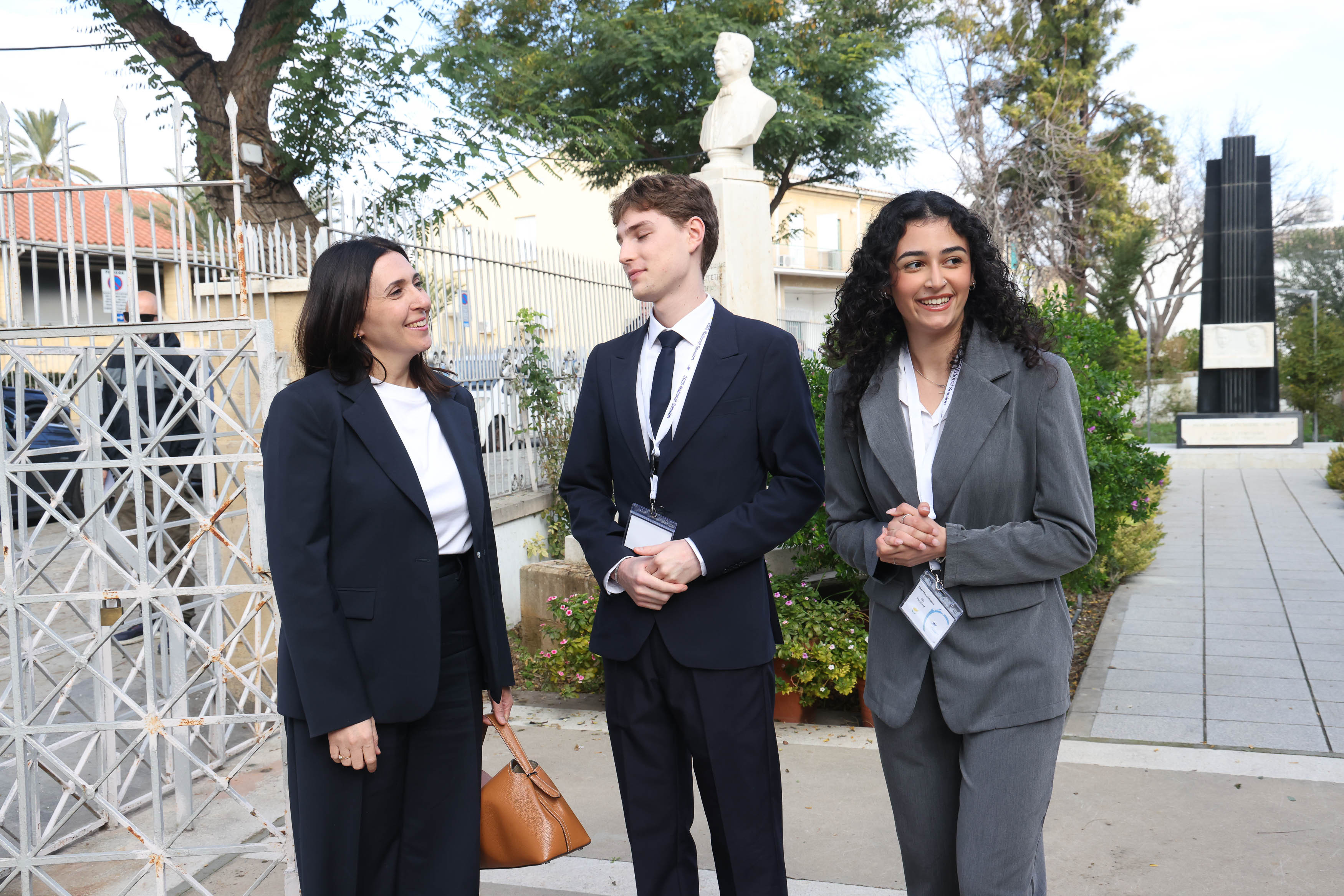The preparations for Cyprus to assume the European Union Council presidency in 2026 were the focus of the second model European parliament conference, held on Friday at the Pancyprian gymnasium in Nicosia.
Students participated in this event, simulating EU decision-making processes. The initiative aimed to promote active citizenship and inspire young people to engage in shaping Europe’s future.
Deputy Minister for European Affairs Marilena Raouna delivered a keynote speech, emphasising the pivotal role of young people in shaping Cyprus and Europe’s future.
“You are the present and future of Cyprus and Europe,” she told the delegates, describing their participation as a testament to responsible, informed, and open-minded citizenship.
She outlined Cyprus’ role during its presidency, set to begin in January 2026, marking a significant milestone for the nation. For six months, Cyprus will lead over 190 working groups, host more than 1,200 meetings in Brussels, and welcome around 20,000 European officials to events on the island.
Raouna noted the presidency would align with broader EU objectives such as sustainable development, safeguarding citizens’ rights, and upholding EU values. She also stressed Cyprus’s unique position as the EU’s only divided member state, reaffirming the government’s commitment to reunification efforts.
“The Cyprus issue is a European issue. A reunited Cyprus must remain a viable and functional EU member state,” she stated.
Plans to involve young people in preparations for the presidency were also outlined. Initiatives will include essay competitions, artistic events, festivals, and interactive projects designed to amplify their voices.
Education Minister Athena Michaelidou highlighted the importance of education and youth participation in shaping Europe’s future.
Speaking about the model European parliament, she praised the programme for providing students with direct experience of EU institutional functions. Through debates, negotiations, and decision-making exercises, participants engage with key political issues and legislative procedures, while developing critical thinking and collaboration skills.

“This programme pushes students out of their comfort zones, encouraging them to think differently and broaden their horizons,” she said.
Michaelidou also spoke about the ministry’s vision to foster responsible and democratic citizens who respect diversity. She encouraged participants to address pressing issues such as employment, political rights, justice, and climate change.
Referencing the island’s ongoing division, she reminded young Cypriots of the challenges posed by the Turkish invasion of 1974.
“You represent a country still suffering from violations of basic UN principles. I hope you are inspired to build a future grounded in trust, democracy, and equality,” she said.
Disy MEP Loucas Fourlas expressed pride in Cyprus’ youth, particularly those who visited the European parliament. He reminded them that Cyprus is more than a dot in the mediterranean but rather what its people make of it. He encouraged students to envision themselves as future MEPs, translating what they learn into real action.
“Europe is our home. Never feel alone in Cyprus,” he told them, highlighting Europe’s obligations, rights, values and principles.
Diko MEP Costas Mavrides commended Cypriot students for excelling in leadership roles, including as committee chairs and vice-chairs. He stressed the transformative power of active citizenship and democracy.
He also underscored the EU’s core values as enshrined in the legally binding charter of fundamental rights, covering freedoms such as movement, residence, religion, expression, and property.
“Yet Cyprus remains an exception, as these freedoms are violated due to the island’s ongoing division,” he concluded.







Click here to change your cookie preferences